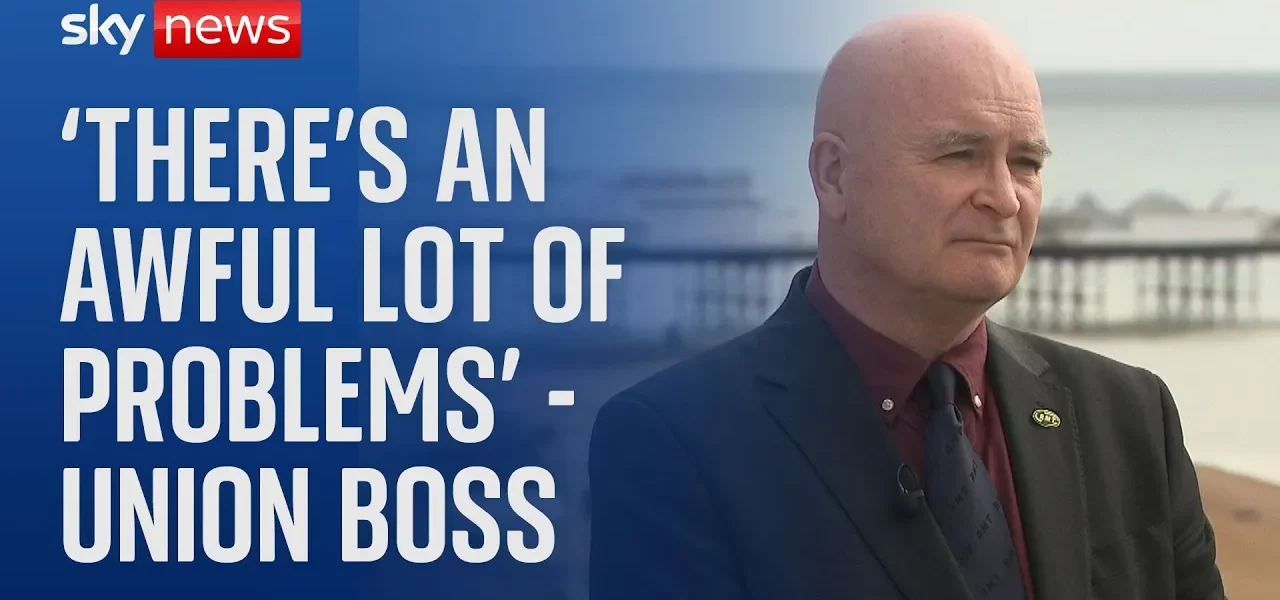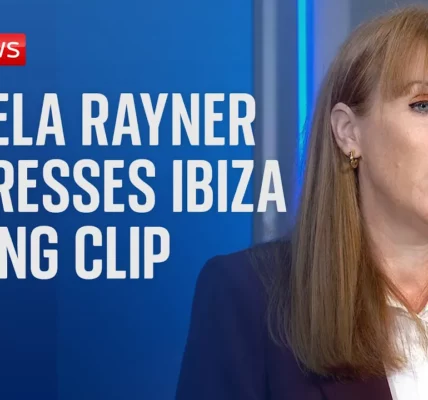Mick Lynch on Wealth Tax and Workers’ Rights: The Future of the UK Economy

In this article, we delve into an insightful discussion with Mick Lynch, the General Secretary of the RMT (Rail Maritime Union), where he addresses pressing economic issues, the necessity of a wealth tax, and the future of workers’ rights in the UK. This discussion is crucial as it highlights the challenges faced by the Labour Party and the broader implications for public services and economic fairness.
Introduction
Mick Lynch’s recent remarks shed light on the urgent and complex issues surrounding the UK’s economic policy, particularly in relation to the winter fuel allowance and the overarching need for a wealth tax. His comments come at a pivotal time when the Labour Party grapples with fiscal constraints inherited from prior administrations. Lynch argues that without sufficient revenue generation strategies, the government will struggle to address the multitude of problems facing public services, infrastructure, and worker rights.
Addressing Economic Issues: The Winter Fuel Allowance
During his discussion, Lynch expressed disappointment that the winter fuel allowance was not explicitly addressed in the recent speech by Mr. Novak. He praised Novak’s delivery but emphasized the need for concrete discussions on how to alleviate financial pressures faced by citizens, particularly during colder months.
Importance of the Winter Fuel Allowance
The winter fuel allowance is vital for many households, particularly those with elderly members, as it helps cover heating costs during the harsh winter months. Lynch advocates for a robust debate on this issue, highlighting several key points:
- The financial burden on vulnerable populations during winter.
- The need for indexing the allowance to inflation to ensure it remains effective.
- The broader implications for public health if households cannot afford adequate heating.
The Call for a Wealth Tax
Lynch is collaborating with Sharon Graham of the Unite union to propose a motion advocating for a wealth tax. This initiative is a response to the growing economic disparity in the UK and aims to ensure that the wealthiest individuals contribute fairly to the economy.
Key Components of the Wealth Tax Proposal
The proposal suggests several key measures, including:
- Implementing a 1% tax on the top 1% of earners.
- Taxing income from property and capital gains at the same rates as regular income.
- Reforming tax structures to enhance fairness and equity.
These measures are designed to increase revenue, which Lynch argues is essential for addressing the country’s numerous challenges, including public service funding, infrastructure repair, and overall economic growth.
Challenges Facing the Labour Party
Lynch critiques the Labour Party’s current fiscal policies, suggesting that inherited fiscal rules from previous Conservative governments have restricted their ability to generate sufficient revenue. He calls for a reevaluation of these policies to allow more flexibility in addressing pressing national issues.
The Need for Investment
Investment is critical for revitalizing crumbling infrastructure. Lynch emphasizes the importance of:
- Rebuilding schools and hospitals.
- Improving engineering and civil infrastructure.
- Creating a resilient economy that can withstand future shocks.
He stresses that the Labour Party must not shy away from borrowing for necessary investments, as this could hinder long-term growth and stability.
Workers’ Rights and Legislative Changes
Lynch also addressed the anticipated legislative changes regarding workers’ rights, highlighting the importance of strong protections for workers in the face of potential pushback from business interests.
Ensuring Fair Treatment for Workers
As discussions on workers’ rights progress, Lynch expresses his concerns about the government’s responsiveness to business pressures. He advocates for:
- Upholding the rights established through previous legislation, such as the Minimum Wage Act.
- Addressing the challenges posed by zero-hour contracts and precarious employment.
- Ensuring fair treatment and benefits for all workers.
His call to action is clear: businesses need to adapt to the changes that enhance worker protections, just as they have in the past.
Conclusion
Mick Lynch’s insights into the economic challenges, the need for a wealth tax, and the importance of workers’ rights provide a comprehensive view of the current state of the UK’s economy. His advocacy for a fair economy emphasizes the necessity for progressive taxation and robust investment in public services. As the Labour Party navigates these challenges, it is crucial for them to engage with these pressing issues to foster a more equitable society. For those interested in following these developments, stay updated on the latest news regarding economic policies and workers’ rights.
“`




